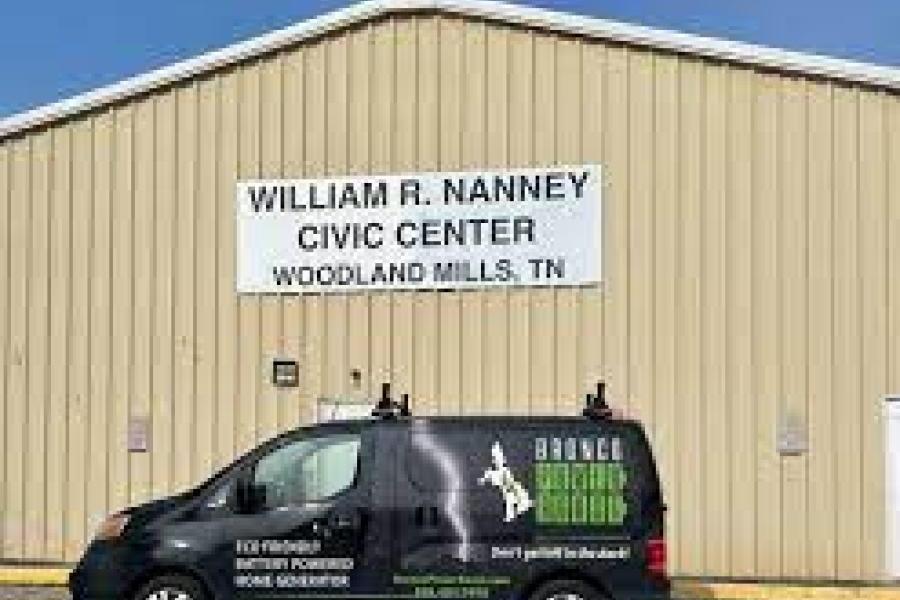Excellence in Green Leadership: Woodland Mills

With a population of only around 326, Woodland Mills is one of the smallest cities in the state of Tennessee.
However, the city’s leadership has shown that even the smallest of cities can take an important leadership role and serve as an example to others in terms of resiliency, preparedness, and green infrastructure.
In recognition of the concerted efforts made by the city of Woodland Mills to leverage federal funds for environmentally-friendly and efficient infrastructure that also serves emergency preparedness goals, the Tennessee Municipal League is pleased to present Woodland Mills with an award for Excellence in Green Leadership.
When Woodland Mills Mayor Joseph Lewis attended last year’s Tennessee Municipal League (TML) Annual Conference in Chattanooga, he was one of many city leaders looking to find ways to put his municipalities’ share of American Rescue Program funding to best use.
After attending an affiliate community sustainability and emergency preparedness roundtable discussions, Mayor Lewis and his city staff contacted officials with the Municipal Technical Advisory Service (MTAS) and the Tennessee Renewable Energy & Economic Development Council (TREEDC) to follow up on ideas presented at the workshop.
Resulting discussions led to Woodland Mills becoming the pilot community for the first MTAS/TREEDC Tennessee Community Resiliency Project, which aims to help communities become more sustainable and resilient against natural disasters. Woodland Mills wanted to become more energy independent as a municipality and implement specific renewable energy-related targets.
The purpose of the project hit home further when many of Woodland Mills’ neighboring communities were devastated in a tornado outbreak that December, prompting the city to fast track the project after rendering aid to their neighbors. By January, the city’s Board of Mayor and Alderman had become the first local government in the state to adopt by resolution the program.
The pilot program calls for a three-tiered approach that helps cities use energy efficiency and sustainability to prepare for natural disasters.
The resolution calls for 100% of electricity used by the city to be derived from renewable energy sources by 2035, the preparation of a climate action plan, and a goal to equip all municipal, commercial, and residential structures with a Bronco Boost Eco Battery generator. This generator doesn’t have emissions and works automatically during power outages, providing vital services when they are most in need.
The city used ARP funds to install the state-of-the-art generators at the Woodland Mills Civic Center, which also serves as the city’s designated emergency shelter. As a result, those seeking shelter will have emergency power during extended outages.
Woodland Mills also joined the Tennessee Flood Ready Program, another partnership with TREEDC that brings government leaders together for technical assistance, awareness, and outreach in developing green stormwater solutions to mitigate the impact of frequent flooding across the state. Involvement in the coalition is one of the parts of the city’s climate action resiliency plants.
Due to Woodland Mills’ vision and progressive leadership, MTAS and TREEDC will offer similar community resiliency programs across the state using Woodland Mills as a model for other Tennessee municipalities.

